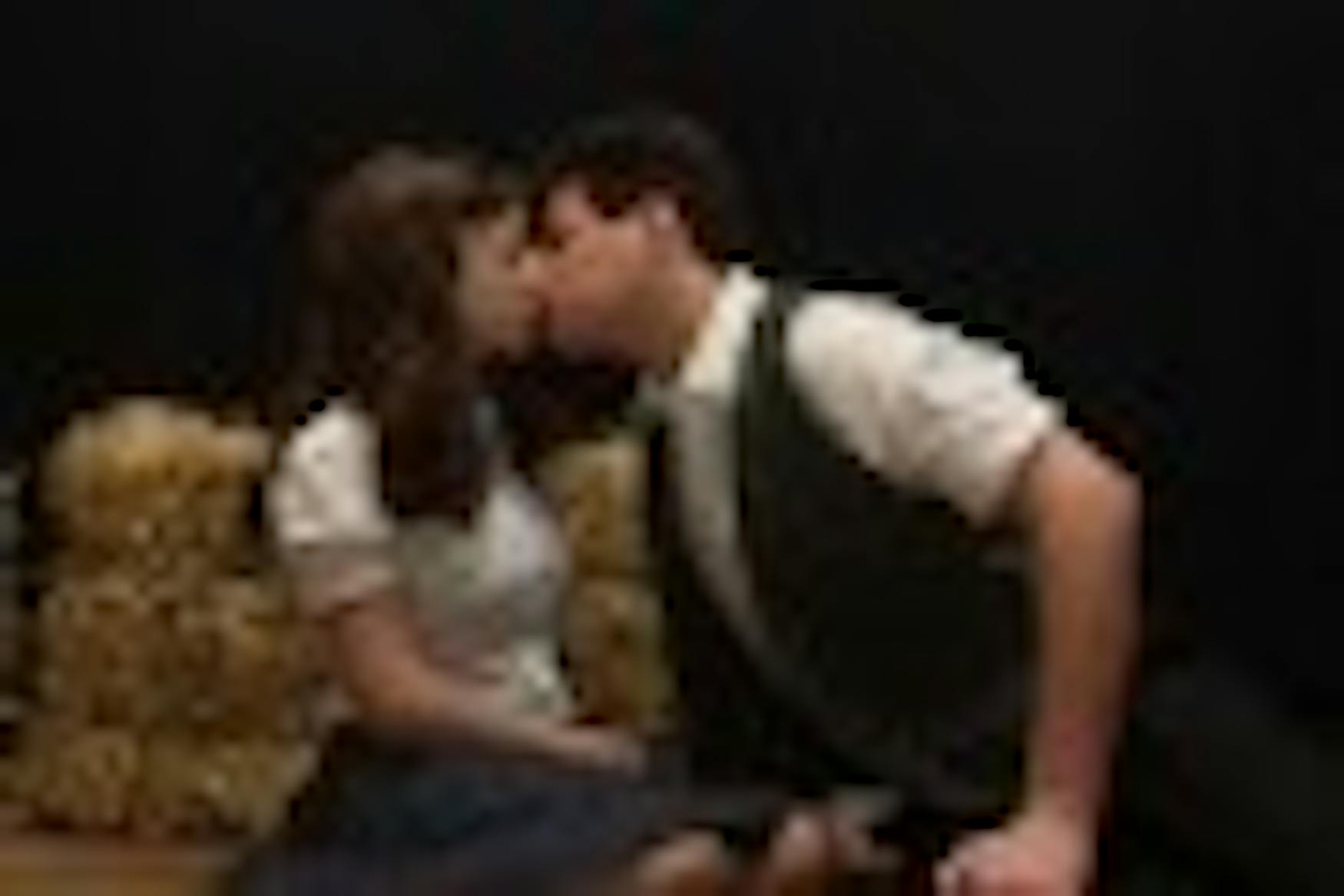Free Play 'awakens' adolescent feelings
Spring Awakening is a show that is wrapped in a straitjacket of controversy. Written by Frank Wedekind at the turn of the 20th century, it covers subjects that theatergoers of a prim and uptight 1890s Germany would have found heinously shocking. These subjects range from abortion, rape and suicide to sexual abuse, homosexuality and masturbation. Even more abhorrent to such a conservative audience would have been the fact that actors playing 14-year-old children perform all these behaviors on stage. Last Saturday, the Free Play Theater Cooperative presented their take on this seminal coming-of-age story at the Schwartz Auditorium.
The story centers on the lives and sexual evolution of three 14-year-olds, Melchior Gabor (Yoni Bronstein '13), Moritz Stiefel (Dave Benger '14) and Wendla Bergmann (Corrie Legge '14). Melchior is atheistic, philosophical, intelligent and knowledgeable about sexual intercourse and reproduction, whereas his best friend Moritz is none of these.
Moritz complains about sexual dreams that are hindering his already close-to-disastrous school performance.
His ignorance of his sexual awakenings prompts Melchior to write him an essay explaining sexual processes-complete with illustrations. Meanwhile, Wendla attempts to get her mother to tell her about where babies come from, but her mother refuses to tell her the truth, which leaves Wendla wondering.
Things take a quick turn after the beginning of the show. Wendla and Melchior have an exchange where Wendla taunts Melchior until he beats her savagely with a switch. Meanwhile, a disgraced Moritz fails to bring up his grades and sends Melchior's mother a letter asking for money to run away.
Wendla meets Melchior in a hayloft during a storm and, completely overcome by his desire, Melchior rapes and unknowingly impregnates her. Moritz, receiving a negative reply from Melchior's mother, goes out into a field and shoots himself.
The play becomes a whirlwind of unbelievable events, both disturbing and fascinating at the same time.
The story is a difficult one to portray convincingly because of the sensitive subjects, but the actors of Free Play perform them with heart. Legge is a sweet and coy Wendla, unchanging in her innocence throughout the play. Bronstein interpreted the role of Melchior with the idea of a pained philosopher driving only in two speeds: matter-of-fact and passionate.
Benger is the most versatile actor in the play; his Moritz is na've, struggling with both his self-worth and fervent religious principles. His soliloquies are subtle yet full of character. All three exuded confidence on the stage, a quality shared by many of the supporting characters.
My issues with Spring Awakening lie perhaps a bit outside of what the producers and actors of Free Play can change. The pace of the show felt inconsistent and volatile. Perhaps one can attribute this to the 19th-century German style of playwriting.
The show was a constant series of shocking plot twists intermixed with long, spoken treatises on philosophy. Sometimes the air surged with the energy of the actors' performance.
But at other times, the philosophical monologues created a lull on stage and dragged the show by the toes.
It was a didactic and long-winded affair, spanning over 2 hours-a quintessentially 19th-century German piece of philosophy.
Though I felt that the script of Spring Awakening was anachronistic and long, the story is one that is relatable to all.
It is a journey of sexual flowering, self-discovery and the pain one suffers during the transitional period before adulthood.
The Free Play actors portrayed the characters well, understanding the play's themes in ways that only young players who have recently experienced them can.
It is a fascinating and shocking piece of theater; I went for the controversy but stayed for the quality of the acting.



Please note All comments are eligible for publication in The Justice.